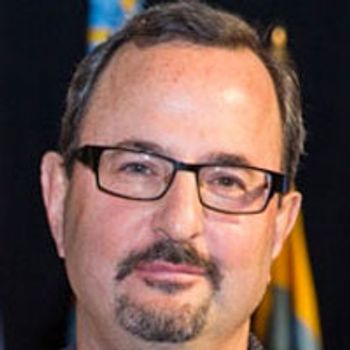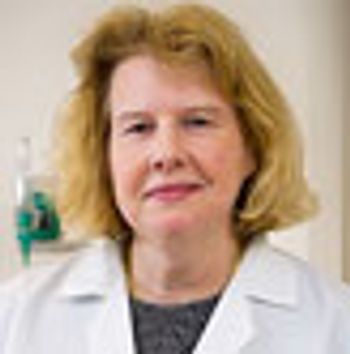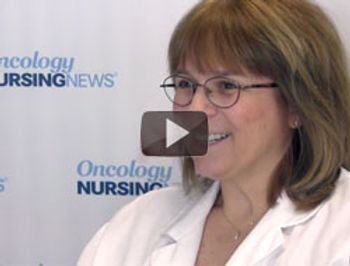
Chest radiation to treat a pediatric cancer is a well-known risk factor for getting breast cancer in adulthood, and research has now unearthed two specific genetic variants which may help to identify those survivors who are most at risk.

Chest radiation to treat a pediatric cancer is a well-known risk factor for getting breast cancer in adulthood, and research has now unearthed two specific genetic variants which may help to identify those survivors who are most at risk.

Debu Tripathy, MD, chair of the Department of Breast Medical Oncology at University of Texas MD Anderson Cancer Center, discusses genetic risk for breast cancer, the strongest factor in determining if an individual will develop the disease.

Study finds that genetic counseling before genetic testing provides greater knowledge and satisfaction with the process.

Richard Joseph, MD, an oncologist at Mayo Clinic, discusses mucosal melanoma.

As genetic testing becomes increasingly available, there will be a growing gap between the wide availability of testing and the relative importance of results to treatment decisions. In the current environment, there's more promise in precision medicine than practical applications in the exam room.

ASCO issues updated statement on its use and healthcare provider education.

Genetic counseling before BRCA genetic testing improves patient knowledge, understanding, and satisfaction. However, a new analysis has found that most women undergoing BRCA genetic testing did not receive counseling prior to testing, despite national guidelines and recommendations.

Young black women have a higher prevalence of BRCA mutations compared with that previously reported among non-Hispanic white women, placing these women at a higher risk for breast and ovarian cancer.

Rebecca Sutphen, MD, from the University of South Florida, discusses the importance of connecting patients with clinical trials.

Like many advocates of a cause, Amy Byer Shainman's passion came from a place of frustration.

Kenneth Freundlich, neuropsychologist, Morris Psychological Group, Parsippany, NJ, discusses the need to support patients with hereditary cancers.

Jennifer Klemp, PhD, MPH, director, Breast Cancer Survivorship Center, The University of Kansas Cancer Center, discusses how to talk to a patient about genetics and cancer risk.

The abundance of new genetic tests, while beneficial in many ways, also has limitations.

Andrew M. Kaunitz, MD, FACOG, discusses important considerations for previvors in addressing menopausal symptoms.

Jill Stopfer, MS, CGC, Senior Genetic Counselor, Abramson Cancer Center, University of Pennsylvania, discusses the benefits of multigene panel testing.

Mary B. Daly, MD, PhD, from Fox Chase Cancer Center, discusses the proper timing for screening patients with a family history of cancer.

Kara Maxwell, MD, PhD, instructor, medical oncologist, Basser Research Center for BRCA, University of Pennsylvania, discusses the need to personalize the treatment of breast cancer.

Alice S. Kerber, MN, APRN, ACNS-BC, AOCN, APNG, Oncology Nurse Specialist, Georgia Center for Oncology Research and Education, provides advice on discussing cancer genetics with patients.

Clinicians and the public need to be aware that being positive for BRCA mutations has consequences for men and their families, too.

Women who are at high risk of ovarian cancer are more likely to undergo preventive ovary removal if they are proactively offered genetic counseling, a new study has found.

Many women who are diagnosed with breast cancer are concerned about the genetic risk of developing other cancers themselves or of a loved one developing cancer. However, a large amount of those concerns are not being addressed, according to a new study.

Angelina Jolie Pitt recently added another chapter to her BRCA mutation story, making public her choice to undergo a preventive salpingo-oophorectomy, removal of her ovaries and fallopian tubes to reduce her risk of cancer.

Analyses of clinical trials continue to illuminate the role of the PARP inhibitor olaparib (Lynparza) in the treatment of women with ovarian cancer, Ursula A. Matulonis, MD, explained during a plenary session at the 2015 Society of Gynecologic Oncology's Annual Meeting on Women's Cancer.

Kim M. Hirshfield, MD, PhD, medical oncologist, Stacy Goldstein Breast Cancer Center, Rutgers Cancer Institute of New Jersey, discusses selecting individuals to screen for genetic mutations and the challenges of better selecting patients to screen.

Pierre Adams shares her story on being diagnosed while being pregnant with twins

Based on results from a new study, researchers now have a better understanding about the mechanisms behind the link between aspirin, NSAIDs, and colorectal cancer prevention.

During President Barack Obama's State of the Union Address last week, he announced a nationwide Precision Medicine Initiative that would help cure diseases such as cancer and diabetes. This morning he built on his announcement and outlined a $215 million plan to help develop precision medicine nationwide.

Joan Lunden talks about imaging technology and genetic testing for the early detection of breast cancer with Roy Firestone and Patrick I. Borgen, MD, in advance of her keynote address at the 32nd Miami Breast Cancer Conference (MBCC).

Researchers from the Case Comprehensive Cancer Center have discovered new gene mutations that are unique to colon cancer in African American patients, who have the highest incidence and death rate from the disease.